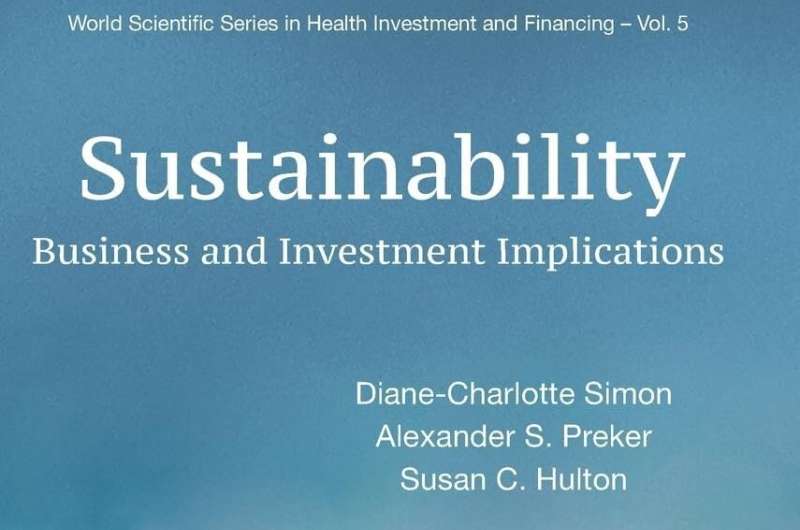GREEN CAPITALI$M
Sustainability presents huge opportunities for business and financial institutions

Why does sustainability matter for businesses and financial institutions? For centuries, competitive markets have been drivers for growth and improvement of quality of life. It is paramount to ensure these markets are compatible with sustainability and can adequately mitigate and adapt to climate change. These changes require a significant amount of capital, and knowledgeable investment and business professionals to deploy it.
"Sustainability: Business and Investment Implications" explores the opportunities and challenges presented by sustainability, the energy transition and the decarbonization of the economy.
Over the past years, the United Nations and global leaders have emphasized the role that the private sector can play in protecting the environment and addressing sustainability issues such as climate change. Historically, governments have played the leading role in addressing sustainability issues and externalities, mainly through environmental policies, laws, and regulations. Though governments have recently demonstrated their ability to provide large amounts of capital to support the economy amidst the COVID-19 pandemic, their high level of debt and fiscal constraints have led many to question their ability to tackle sustainability issues on their own. The private sector is well-positioned to fill the gap.
But while the awareness of sustainability has significantly increased over the past decade, there are still major gaps in both investments and skilled professionals who understand sustainability-related opportunities and threats. These factors led to the development of this handbook.
"Sustainability" provides insights for businesses and investors on how to navigate this complex landscape of sustainability. It is intended as a primer for university business schools and schools of public policy and administration. It also appeals to a broader readership, including practitioners, thought-leaders, entrepreneurs, professionals, policymakers, regulators, technical specialists, and the public at large.
Corporate sustainability and sustainable finance are evolving so quickly that it can be difficult to keep up. Multiple frameworks, regulations, strategies (impact investing, shareholder engagements, etc.), and acronyms (ESG, SRI, etc.) have emerged over time. This book untangles these various terms and explores the implications of sustainability for financial institutions and companies of various sizes (from start-ups to large multinational corporations). It delves into the financial impacts of sustainability, analyzing both profitability and market valuation indicators, and also presents the financial case for embedding sustainability at the core of business strategy.
Written by 15 contributors ranging from world leading experts, to professionals with hands-on experience in businesses and financial institutions (including multilaterals) as well as professors from leading institutions in the United States, France and Switzerland, "Sustainability" explores the fundamentals of corporate sustainability, sustainable finance and the transition to a lower carbon economy.
The editors and chapter authors invite readers to be part of the solution—whether they work for a large company or a not-for-profit, whether they build their own business or become an investor, a banker, an engineer, a researcher, or a policymaker. Sustainability is multi-faceted and requires professionals of all kinds. The editors and chapter authors hope that readers will be inspired by this book so that they can address the challenges and seize the opportunities that lie ahead.
Provided by World Scientific Publishing
No comments:
Post a Comment